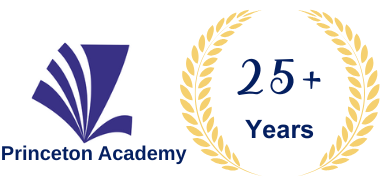Introduction
In a world where knowledge is power, creating a learning culture isn’t just a choice; it’s a necessity to survive and thrive! Companies that invest in the continuous development of their employees tend to be more innovative, adaptive and resilient.
Unfortunately, many employees who likely have different needs, goals, aptitudes, roles and background are blasted with identical content. They are plodded through mandatory training on a topics some are already highly proficient in, which can be a frustrating and demoralizing experience. Hence it is critical to personalize training specifically for their interests and career goals.
Assessment & Needs Analysis:
- Identifying individual and organizational development needs.
- Utilizing diverse assessment tools (e.g. 360-degree feedback, competency models).
- Setting clear learning objectives and desired outcomes.
Designing the Learning Journey
- Blending formal, informal, and social learning experiences.
- Trends and challenges in executive learning.
- The ROI of executive development programs.
- Integrating coaching, mentoring and peer learning.
- Leveraging action learning and on-the-job applications.
Choosing the Right Modalities:
- Facilitated workshops and sessions.
- Microlearning and e-learning modules.
- Simulations and case studies.
- Action learning projects and stretch assignments.
- Coaching and mentoring programs.
- Experiential learning opportunities.
Creating Engaging Learning Experiences:
- Utilizing adult learning principles.
- Gamification and storytelling techniques.
- Personalized learning pathways and adaptive learning.
- Collaboration and peer-to-peer learning.
Case Studies & Best Practices:
- Analyzing successful executive development programs.
- Exploring real-world examples from different industries.
Measuring & Evaluating Success
- Aligning with learning objectives and organizational goals.
- Measuring knowledge, skills, and behaviour change.
- Assessing impact on individual and organizational performance.
Evaluation Methods & Tools:
- Pre- and post-program assessments.
- 360-degree feedback and performance reviews.
- Return on Investment (ROI) calculations.
- Tracking behaviour change and business impact.
- Demonstrating the value of executive development.
Emerging Trends in Executive Learning:
- Artificial intelligence and personalized learning.
- Virtual reality and gamified experiences.
- Micro-credentials and bite-sized learning.
- Building agile and adaptable learning cultures.
COURSE SCHEDULE & FEES
DOWNLOAD COURSE CONTENTS
Please click the button below to download the course content. You'll need to provide your contact information to receive the document.
INCOMPANY/GROUP TRAINING REQUEST
Why Choose Our Incompany Program?
- 🎯 Tailored content specific to your business goals
- 👥 Train entire teams together, saving time and cost
- 📍 Delivered at your location or virtually
- 📅 Flexible scheduling to suit your timelines
- 📈 Increase retention and application of skills
